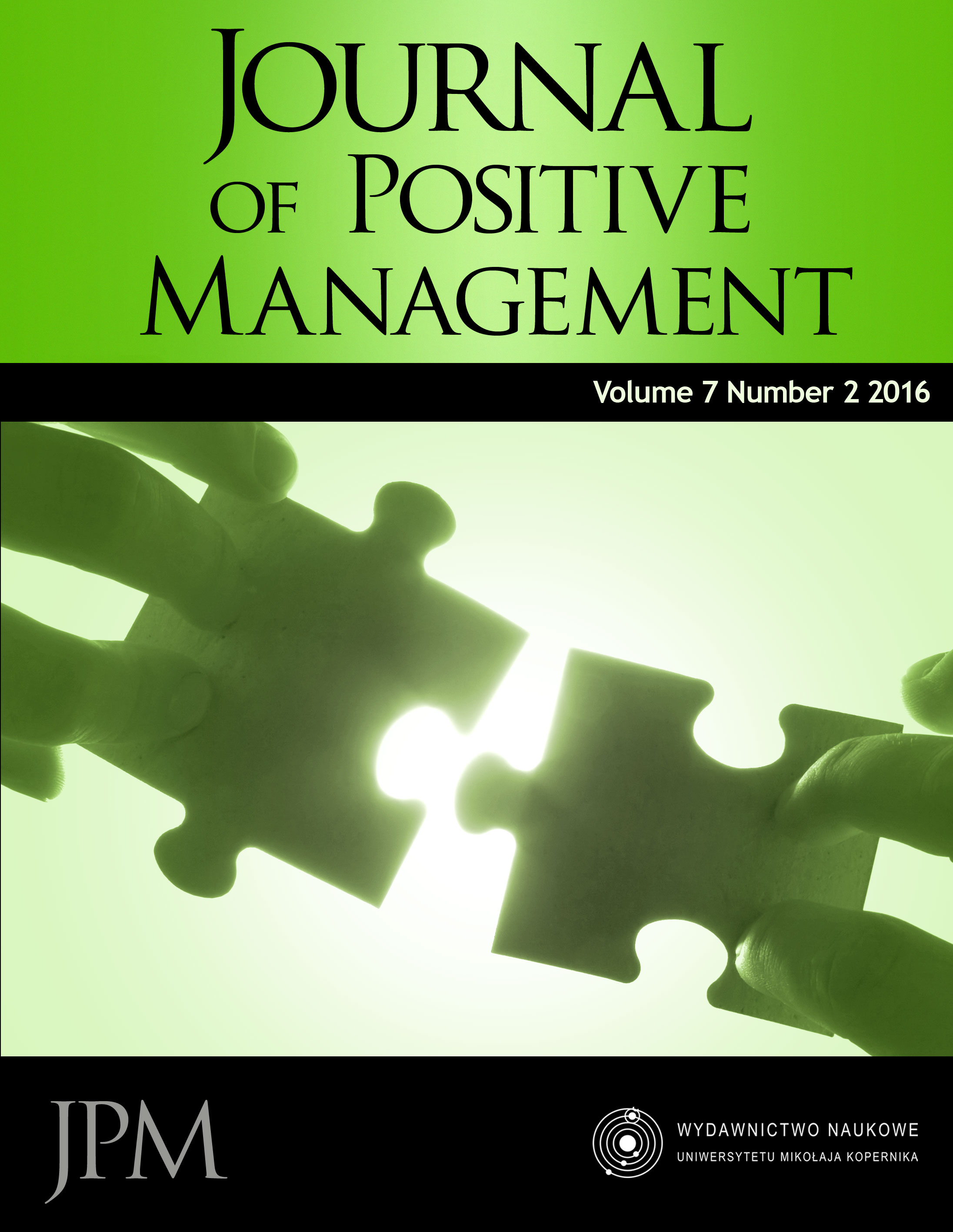PROMOTING COOPERATION IN SUPPLY CHAIN AS AN ADVANCED MANAGEMENT TOOL
DOI:
https://doi.org/10.12775/JPM.2016.009Keywords
promoting, cooperation, supply chain managementAbstract
Purpose: The purpose of this paper is to present benefits for various supply chain links, which are managed by leader who successfully promoting cooperation. Also presented a theoretical culture of trust and teamwork model, based on four key pillars. Furthermore, it describes the most important indications for supply chain leadership in promoting co-operation.
Design/methodology/approach: This paper presents only a theoretical approach. All information has been characterized on the basis of literature.
Findings: An article describes a number of benefits, which organizations can achieve if they cooperate. Key benefits of using based on co-operation model are considered: increase competitiveness of the company through participation in the structures to ensure survival (the possibility of selling goods and services), establish business contacts with other companies, reduction of time and costs paid by client, reduction of the uncertainty action, keeping delivery times, increase reliability of supply, reducing pollution and harmful effects of processes on the environment. Presented benefits clearly indicate that organizations which are in a supply chain can achieve much more than companies which act alone.
Research and practical limitations/implications: Conclusions, which are summary of the article can provide guidance to supply chain leaders.
Originality/value: The paper can provide value for people involved in supply chain management, both leaders and supply chain members. Originality of this article is difficult to assess because article presents a theoretical, not empirical issues.References
Adler, P., Heckscher, Ch., Prusak, L. (2012), “Jak zbudować firmę nastawioną na współpracę”, Harvard Business Review Polska, No. 108/02, avalilable at: https://www. hbrp.pl/a/jak-zbudowac-firme-nastawiona-na-wspolprace/17EoPAnxT (accessed 9 December 2016).
Hoyt, J., Hug, F. (2000), “From arms − lenght to collaborative relationships in the supply chain. An evolutionary process”, International Journal of Physical Distribution & Logistics Management, Vol. 39 No. 9, pp. 758–759.
Ibarra, H., Hansen, M. T. (2012), “Czy jesteś liderem promującym współpracę?”, Harvard Business Review Polska, No. 108/02, avalilable at: https://www.hbrp.pl/a/czy-jestesliderem-promujacym-wspolprace/BKGW0JOj (accessed 9 December 2016).
Kidder, T. (1981), The Soul of a New Machine, Boston: Little, Brown.
Kifor, C., Bucur, A., Farooq, M. (2012), “Development and implementation of supply hain management focusing on procurement processes and suppliers”, International Journal of Engineering, Vol. 10 No. 2, pp. 77–82.
Koźmiński, A., Piotrowski, W. (2000), Zarządzanie. Teoria i praktyka, Wydawnictwo Naukowe PWN, Warszawa.
Lee, H. L. (2005), “Sekret najbardziej efektywnych łańcuchów dostaw”, Harvard Business Review Polska, No. 25, pp. 78–92.
Muntean, S. N. (2014), “Talent management and its contributions to the performance of the multinational organizations”, Revista Academie Fortelor Terestre, Vol. 19 No. 3, pp. 300–306.
Varsei, M. (2016), “Sustainable Supply chain management: a brie literature review”, Journal of Developing Aeas, Vol. 50 Special Issue, pp. 411–419.
Warzybok, M. (2012), “Warunki sprawnej współpracy”, Harvard Business Review Polska, No. 108/02, avalilable at: https://www.hbrp.pl/a/warunki-sprawnej-wspolpracy/ MdRweqb7 (accessed 9 December 2016).
Wexler, S. (2010), “IBM Unveils New Products, Services and Strategy”, Channel Insider, No. 2/23.
Downloads
Published
How to Cite
Issue
Section
License
Copyright
Articles submitted to the journal should not have been published before in their current or substantially similar form, or be under consideration for publication with another journal. Authors submitting articles for publication warrant that the work is not an infringement of any existing copyright and will indemnify the publisher against any breach of such warranty. For ease of dissemination and to ensure proper policing of use, papers and contributions become the legal copyright of the publisher unless otherwise agreed.
Plagiarism and ghostwriting
In response to the issue of plagiarism and ghostwriting the editors of the Journal of Positive Management has introduced the following rules to counteract these phenomena:
1. Contributors should be aware of their responsibility for a content of manuscripts.
2. Collective authors are obliged to reveal the contribution and an affiliation of each author (i.e. who is an author of specified part of a paper).
3. Any act of dishonesty will be denounced, the editors will inform appropriate institutions about the situation and give evidence of all cases of misconduct and unethical behaviour.
4. The editors may ask contributors for financial disclosure (i.e. contribution of specified institutions).
Stats
Number of views and downloads: 581
Number of citations: 0



